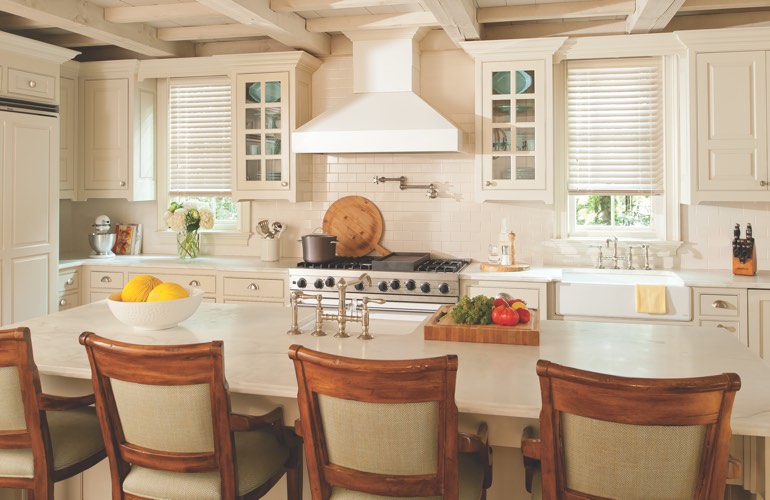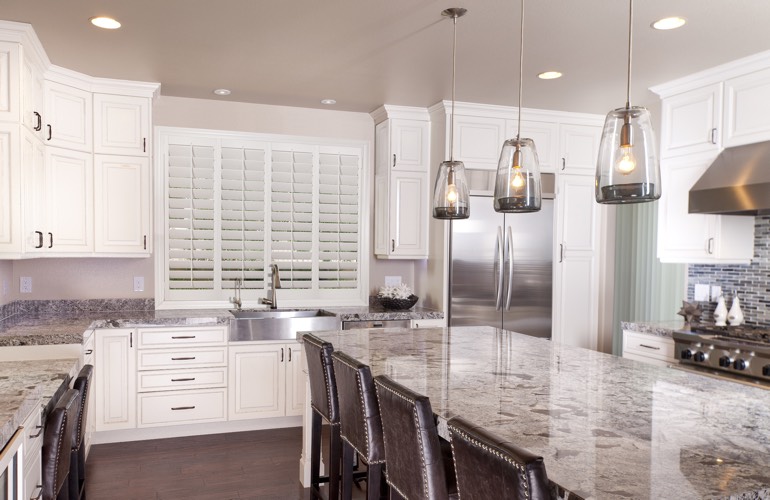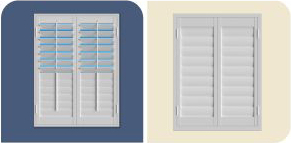
Why Some Homeowners In Tampa Confuse Plantation Blinds And Plantation Shutters
When Tampa homeowners give us a call for a quote, they might accidentally ask for plantation blinds. But plantation blinds isn’t the right name of the window treatment they‘re thinking of.
That’s because when people say “plantation blinds”, they actually mean plantation shutters.
Interior shutters are synonymous with the term “plantation”not blinds. And the term “plantation” refers to the style of the window treatment as it relates to the size of the horizontal louvers.
Blinds have thin horizontal slats that are usually called slats. But these slats are not thick enough or wide enough to be “plantation” style.
Even some blind companies call blinds “plantation,” although that term has been associated with interior louvered shutters. Plantation style shutters might be mistaken for blinds at a glance. But these two window treatments differ in plenty of ways.
How Plantation Shutters Are Different From Blinds


Plantation Shutters Last Longer Than Blinds
Premium plantation shutters can be built from hardwood, reclaimed wood, or a synthetic wood. Any of these materials make for a sturdy window treatment that lasts for many more years than a blind. And when the paint on your shutters is infused with UV stabilizers, your plantation shutters will not lose their original color.
Unlike shutters, blinds may have a rod to move the slats. And they have a series of cords to hold the slats up. Those two parts, as well as the thin slats, are notorious for breaking.
Blinds don’t give you control over temperature and light. And they can yellow over extended periods of sun exposure, which is not the case with quality shutters.
They’re Highly Energy Efficient
The material a window treatment is made from greatly affects its energy efficiency. Plantation shutters, with their wood and synthetic wood louvers, are known to be the most energy-efficient window treatment in Tampa. And it’s Polywood®’s exclusive weatherstripping that’s made to help seal off airflow. That’s how Polywood is 1600% more energy efficient than an aluminum blind.
When the blind is closed, there’s room on both sides of the blind where air can flow. There are holes where the cords are. And the slats aren’t tight against each other. These issues make blinds less energy efficient than well-built plantation shutters.
They Accentuate The Shape Of Your Window
Another thing to keep in mind is that a rectangle is the only shape blinds are available in. And when you have windows that are octagonal, circular, arched, or triangular, blinds will hide the shape rather than highlight it.
Plantation shutters however are perfect for specialty-shaped windows. They are custom built to account for every arch, angle, and corner. The completed product is a window treatment that operates smoothly. And it will look beautiful and makes the window shape pop.
They Give Your Home A Custom Look
Yes, you can get blinds in an array of finishes, colors, and textures. They can even be cordless and motorized. But no matter what combination you pick, blinds don’t look as custom as shutters do.
Plantation shutters in Tampa are available in reclaimed wood, Polywood, and Ovation® wood. And there’s over 300,000 ways to customize these window treatments so they fit your personal taste.
Shutters are usually installed with a frame that accentuates the corners of the window and highlights the shutter panels. The interior shutters become a fashion statement that wows. And as a permanent fixture, they adds to your home’s appraisal value.
One unique way for custom window coverings is to have the shutters built from reclaimed wood. No two shutter panels - no two shutter louvers - have similar holes, colors, or marks. It’s the ultimate custom window treatment you can find in the Tampa area.


